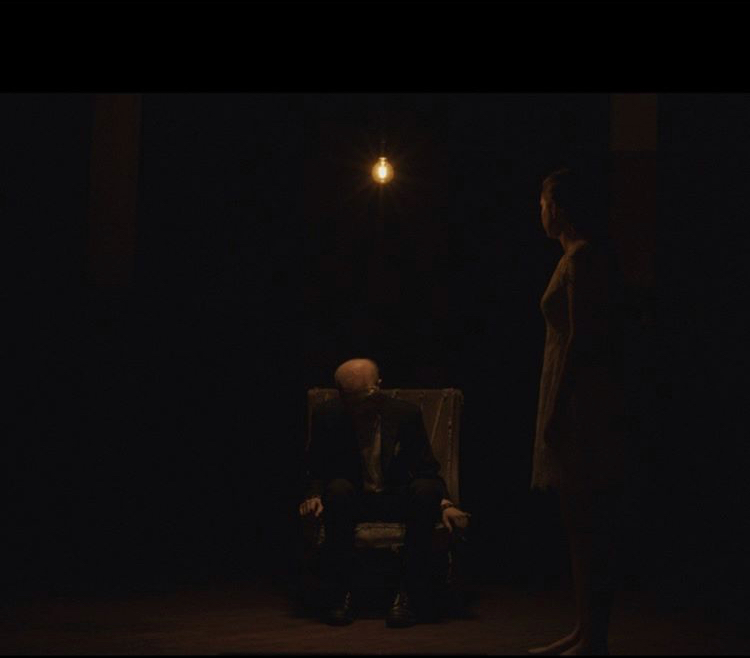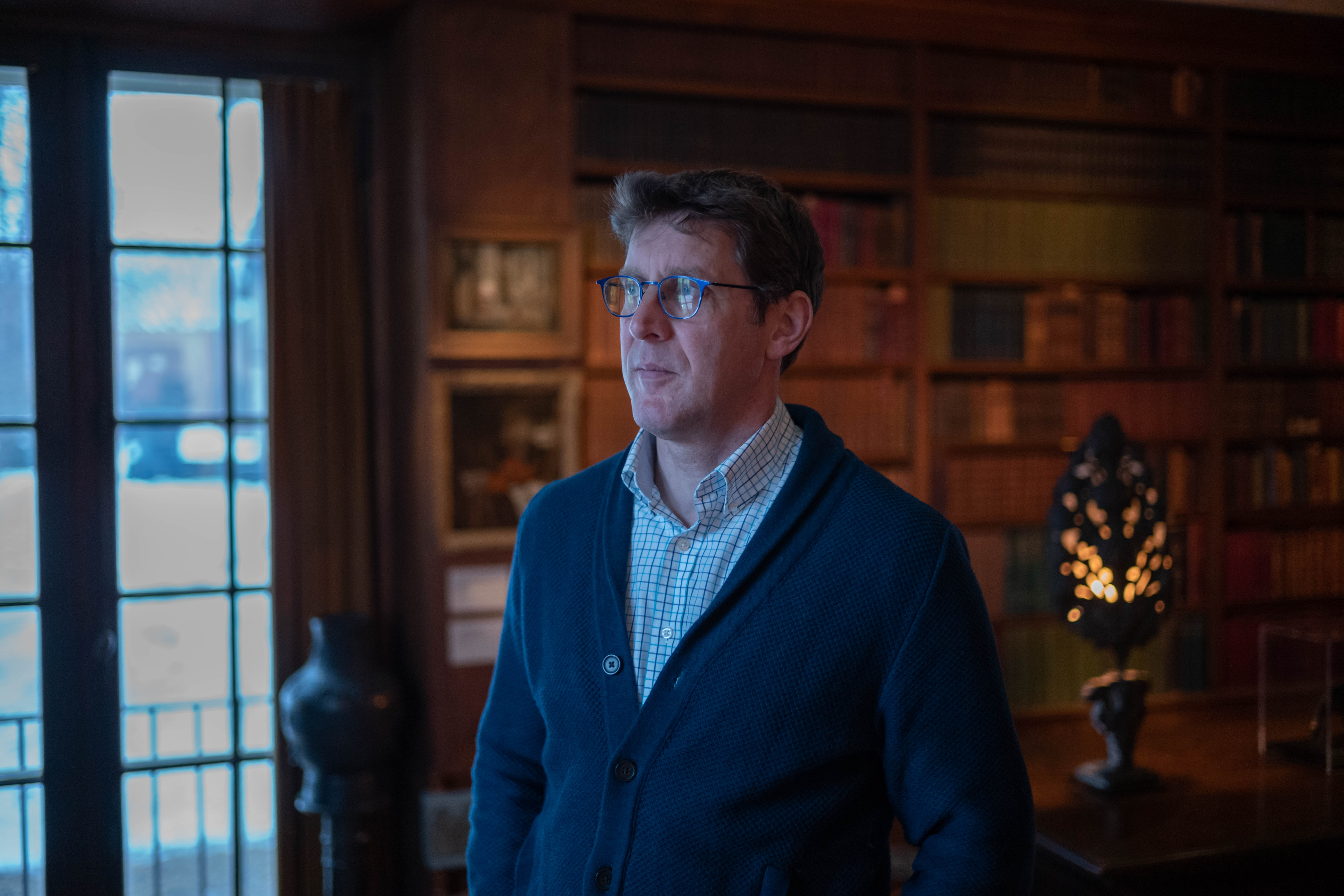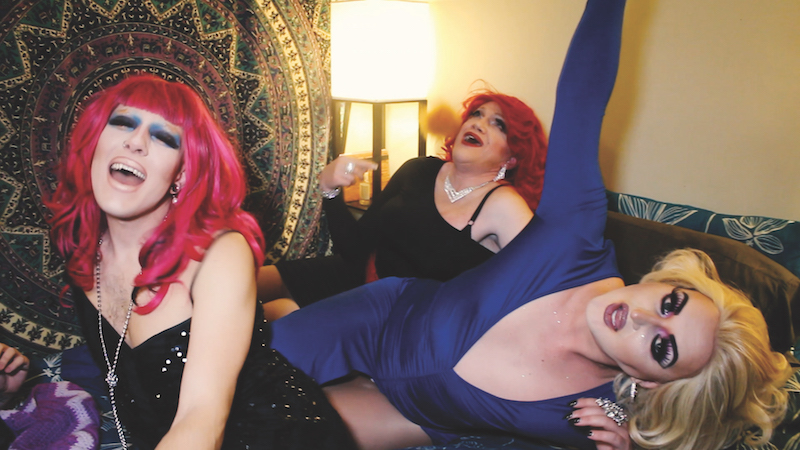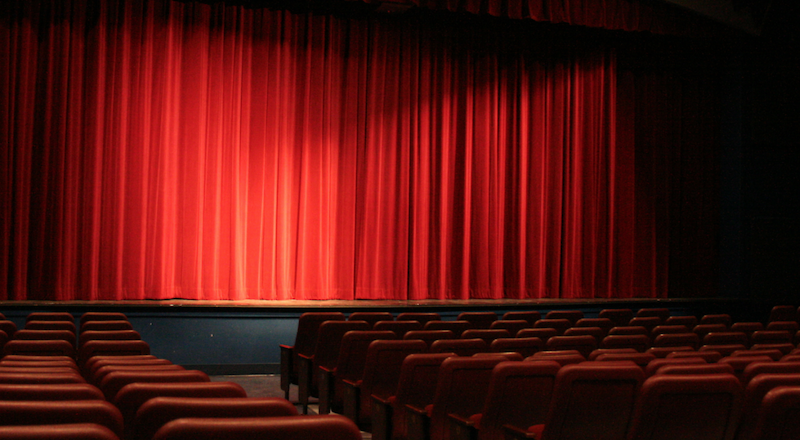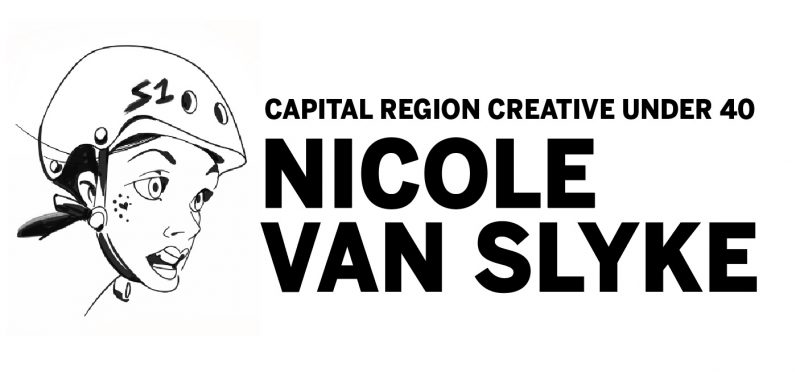Above: A still from Gietl’s short film “Museum”
Joe Gietl wrote his first screenplay only three years ago, after experiencing a strangely intense and miscommunicated museum tour through a relocated morbid anatomy exhibit in Paris. Sitting in Stacks Espresso on Lark, his bright eyes dart and widen as he describes being led through a medical style sub-basement with a small group, lectured to in French with no translator while surveying cataloged items that were taped off and barely visible. When he tried to leave, he says, an intimidatingly large guard-type dragged him back to the tour by his bookbag. Though the reason was never entirely clear to Gietl, he guesses that the rest of the building the artifacts were relocated to must have been restricted in some way. The more he walks through the scenario–which includes the guard crossing the bleak room to a solitary red wall phone to call for someone to walk Gietl out of the building–the stronger the Black Mirror-esque mental image becomes. Tentatively called “Museum,” the resulting screenplay translated into a 19-minute film about a man who was having “intrusive thoughts” about killing his wife.
“I’ve never been to a museum where they don’t let you leave,” he chuckles. “Am I going to become part of the museum? That idea stuck in my head and eventually the museum became far more abstract and symbolic, kind of like this Jungian philosophy of confronting the dark parts of yourself. The more you push things away, the more intense they become…Heavy, but it sort of plays out in a surrealist way.”
It took awhile for “Museum” to manifest. While a lifetime lover of movies and former songwriter, filmmaking was never a creative direction Gietl thought he would take. After experiencing a difficult bout of trauma about eight years ago, and quitting his job six months ago, he decided to commit to his passions. In terms of storytelling, he says, filmmaking was the genre he connected with the most.
Asked when he thought he was ready to fully dive in, he smiles and shakes his head.
“I wasn’t. I think that’s the point, realizing you’re never really going to be ready,” he says. “I think a lot of people are waiting for the right time to do something. There was a lot of self doubt that went into the process and there are days when you feel like, ‘Is this really good? Is this what I think it is? I hate this.’ Some days you work for hours just to move the rock one inch. The biggest thing for me that changed was sticking with it, even when I wanted to just jump onto the next idea.”
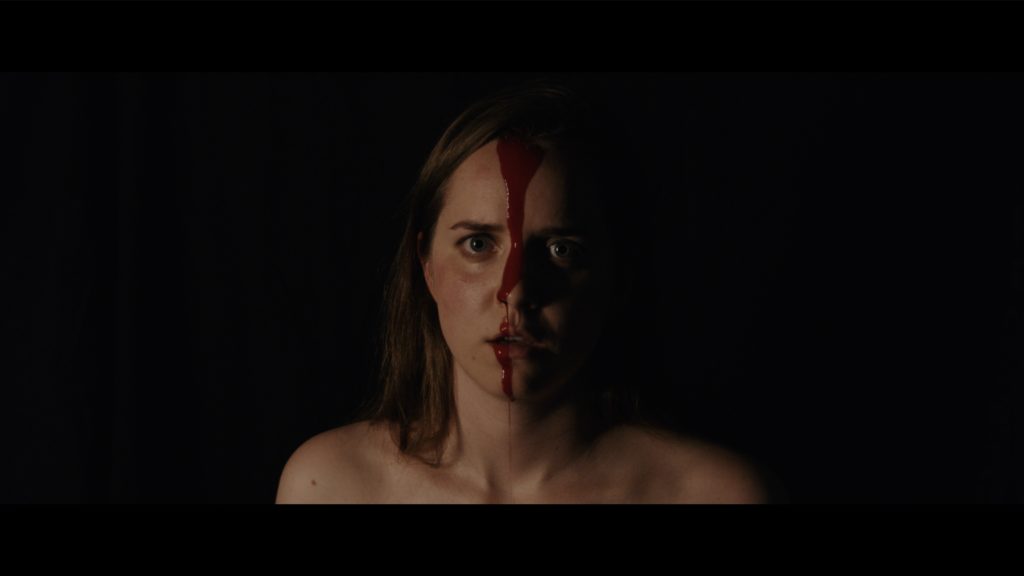
Still from “Museum”
Self-funded with some help from his family, “Museum” came to life with the help of fellow local filmmaker Kyle Kleege, John Yost of Fifth Column Features, as well as Jim Powers and John Stegman of Averill Park’s West Field Films.
“I think there’s a growing scene in Albany, a really interesting opportunity to tell stories here,” he says. “There are a lot of hungry directors.”
His second film, “A Void,” follows the non-linear storyline of a grieving husband and wife who have just lost their child. “The wife is a scientist and she starts being drawn more and more to something that’s being created in the lab, it starts to kind of take the place of her child and he feels her slipping away from him,” the director explains. “You don’t know how much of what’s happening is just in his head.”
The production consists of the same main team behind “Museum” and carries quite a similar feel–in Gietl’s unique and abstract style which Kleege refers to as “cosmic psychodrama.”
“A feeling of unreality as I walk around in the world, it’s hard to put a label on where that comes from,” Gietl says of his style. “I think I gravitate towards things you don’t know why you connect to, but you do and you feel it a sort of primal way.”
He cites Polish filmmaker Andrzej Zulawski, known for his cult film “Possession,” as a major influence.
“It was more about the possession of relationships than an exorcist type of thing,” he says. “His movies play out in this really frantic way, it’s almost as if the characters can’t hide what’s going on inside of them and I really connected to that for ‘A Void.’ There’s a scene where he’s following his wife around the house trying to get her to tell him what’s going on and she’s flinging things out of drawers, packing her things. Everything’s moving.”
Financially though, “A Void” has come together quite differently than his first film.
The work in progress just received $5,000 as the first installment of a larger investment from Beth Hinde, an independent film enthusiast and screenwriter (“Someone Else’s Hero”) from Cedar Rapids, Iowa. The final production goal is $20,000. Hinde was connected to the project by the film’s lead actor D’Andre Johnson, who happened to be a friend of the investor.
“I’m always a little bit hesitant about just sending [a project] but the message she sent back to him was, ‘I really like this, I’m interested. I think I want to invest, can we set up a chat with the director?’ and that was it. I just got on the phone with her and pitched it. A lot of it really is selling yourself as well as the movie. This is the first time I’ve gotten an investor,” he says, explaining that while the connection to Hinde happened unexpectedly, he has spent a solid chunk of time researching investment and crowdfunding outlets.
“It’s like a full time job crowdfunding a campaign like that,” he continues. “I’ve been talking to another potential investor, sort of on the same scale of [Hinde] who just invested in ‘A Void,’ so I definitely want to keep going in that route. I want to eventually work my way towards feature film and this is a good proof of concept that I can do that.”
When it comes to a project like “A Void,” he certainly has the content to make it happen. The final 25-page script originally sat at a hefty 80 in the year he spent writing the film, starting in May 2017.
“I couldn’t break through it. There was something missing, so I put it down for about two months and didn’t touch it,” Gietl says. “I was working on ‘Museum’ because it was getting closer to the point where we were gonna film and I just thought, “Fuck this. I’m gonna tear this thing up and see what happens,” and I ended up radically rearranging the structure of it and that’s when it became non-linear. Almost in the course of an hour or two, something I had been stuck on for months came together. It added so much more depth and power to what I was trying to do.”
As he continues to create within the local film community and explore independent festivals on a grander scale, Gietl says learning how to communicate with potential investors and connect with the “right” production team members has been a pivotal part of his creative journey.
“It’s important to connect with who you’re working with. You don’t want to make a movie with someone who doesn’t get it at all. Everybody is like, ‘You’ve gotta make a bad movie first,’ and I don’t want to make a bad movie, I want to make a good movie, so this is going to take longer.”
Gietl is currently working on a third screenplay–“just to keep the momentum going,” he says–and stays heavily invested in the Albany scene. He meets with filmmaker friend and collaborator Kleege, for example, once a week to discuss new ideas.
He stops for a moment, bringing up a story about director Brian de Palma’s Blow Out.
“He was like, ‘I think this is my best movie ever, I think it’s my best work.’ Then he goes to the movie Raging Bull by Scorsese and he’s like, ‘God damn it. There’s always Scorsese, no matter what I do.’ I sort of want that type of relationship with each other, the healthy competition that has us pushing each other to see what we can try to go deeper and get better, I think it’s good.”

